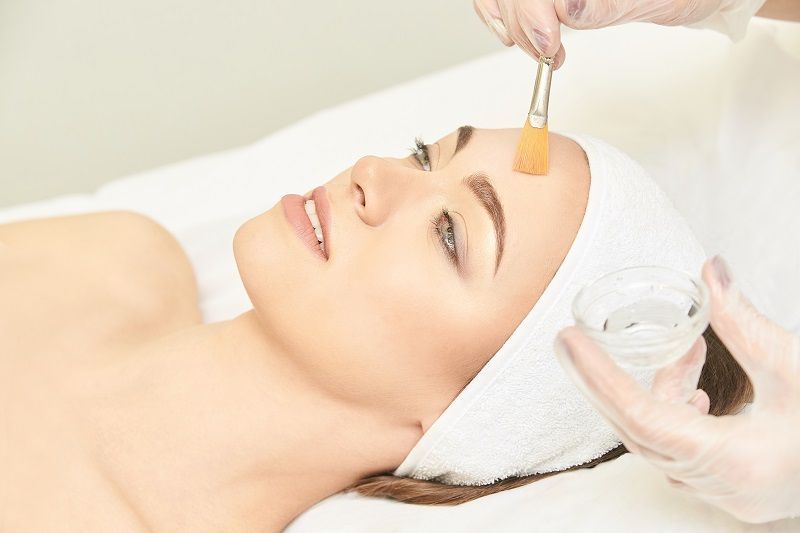Chemical peels are a popular skincare treatment designed to improve the skin's appearance by removing dead skin cells and promoting new cell growth. They are used to address various skin concerns such as acne scars, pigmentation, uneven skin tone, and fine lines. With the changing seasons, many individuals consider whether undergoing a Chemical Peel Abu Dhabi or elsewhere is safe during summer months. Understanding the safety, benefits, and precautions associated with chemical peels during summer is essential for achieving optimal results while maintaining skin health.
Understanding Chemical Peels
What Is a Chemical Peel?
A chemical peel involves the application of a specially formulated solution to the skin, which causes controlled exfoliation and peeling of the outer layers. This process reveals healthier, smoother skin underneath, resulting in a more youthful appearance. Chemical peels vary in depth—from superficial to deep peels—depending on the skin concerns and desired results.
Types of Chemical Peels
- Superficial Peels: Use mild acids like alpha-hydroxy acids (AHAs) for gentle exfoliation.
- Medium Peels: Use stronger acids like trichloroacetic acid (TCA) to target deeper skin layers.
- Deep Peels: Use phenol solutions for intensive treatment, typically performed in specialized settings.
Benefits of Chemical Peels
Chemical peels can effectively improve skin texture, reduce pigmentation, diminish fine lines, and promote collagen production. They are a non-invasive way to rejuvenate the skin, making them a preferred choice for many seeking skin renewal.
Chemical Peels and Sun Exposure
Why Sun Exposure Matters
Sun exposure significantly impacts the effectiveness and safety of chemical peels. Ultraviolet (UV) rays can cause skin irritation, hyperpigmentation, and uneven healing post-treatment. During the summer months, increased sun exposure can hinder recovery and lead to undesirable outcomes.
Risks of Chemical Peels During Summer
Performing chemical peels during summer can elevate the risk of complications such as pigmentation changes, sunburn, and prolonged healing. The skin becomes more sensitive after a peel, making it more susceptible to UV damage.
Is a Chemical Peel Safe During Summer Months?
General Safety Considerations
While chemical peels can be safely performed during summer, certain precautions must be taken. The key is to evaluate individual skin type, the depth of the peel, and adherence to post-procedure care. Superficial peels are generally considered safer during summer due to their mild nature and shorter recovery time.
Precautions to Take
- Sun Protection: Using broad-spectrum sunscreens diligently is crucial.
- Timing: Scheduling peels during early mornings or late evenings reduces sun exposure.
- Post-Treatment Care: Following all aftercare instructions to protect and soothe the skin.
- Skin Preparation: Pre-treatment skincare routines can enhance safety and results.
Recommendations for Summer Peels
It is often recommended to opt for lighter peels during the summer months to minimize risks. Deep peels may be better suited for cooler seasons due to their longer recovery and higher sensitivity post-procedure.
Pre- and Post-Peel Care During Summer
Pre-Peel Preparation
- Avoid excessive sun exposure prior to the peel.
- Use skin-brightening and barrier-repair products as advised.
- Maintain proper hydration and skincare routines.
Post-Peel Care
- Apply prescribed moisturizers and soothing agents.
- Avoid direct sunlight; stay indoors during peak hours.
- Wear protective clothing, wide-brimmed hats, and sunglasses when outdoors.
- Reapply sunscreen frequently, even on cloudy days.
Alternative Treatments During Summer
For those concerned about sun-related risks, alternative skin rejuvenation options may be more suitable during summer months. These include laser treatments, microneedling, or topical skin care regimens that require less downtime and pose minimal sun sensitivity.
Final Thoughts
Performing a Chemical Peel in Abu Dhabi or any chemical peel during summer is feasible with proper planning and precautions. Superficial peels can offer skin benefits while minimizing sun-related risks when combined with diligent sun protection and post-treatment care. Consulting with a skincare professional ensures personalized advice tailored to your skin type and goals, allowing you to enjoy safer and effective skin rejuvenation year-round.
FAQs
1. Can I get a chemical peel during summer without increasing skin damage?
Yes, by choosing superficial peels, applying comprehensive sun protection, and adhering to post-treatment care, you can safely undergo chemical peels during summer.
2. How long should I wait after a chemical peel before sun exposure?
It is advisable to avoid direct sun exposure for at least two weeks post-peel or until the skin has fully healed. Always follow your skincare professional’s specific guidance.
3. Are there specific skincare products recommended after a summer peel?
Post-peel skincare should focus on gentle cleansing, hydration, and sun protection. Products containing soothing ingredients like aloe vera and hyaluronic acid are beneficial.
4. Is it better to schedule a chemical peel during cooler months?
For deeper peels or if you have sensitive skin, scheduling during cooler months can reduce sun exposure risks and promote optimal healing. However, superficial peels can be safely performed year-round with proper precautions.
